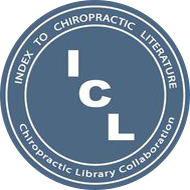Objective: The primary aim was to investigate the effect of inferior shoulder mobilization on scapular and shoulder muscle activity during resisted shoulder abduction in asymptomatic individuals.
Methods: This was a lab-based, repeated-measures, crossover, randomized controlled study. Twenty-two participants were recruited. The order of experimental conditions was randomized. Each participant performed 5 repetitions of resisted shoulder abduction before and after the control and mobilization (grade +IV inferior shoulder mobilization, 3 sets, 60 seconds) conditions. Surface electromyography recorded the muscle activity of anterior, middle, and posterior deltoid; supraspinatus; infraspinatus; upper and lower trapezius; serratus anterior; and latissimus dorsi muscles.
Results: Muscle activity levels reduced for infraspinatus (11.3% MVIC, 95% CI: 1.7-20.8), middle (22.4% MVIC, 95% CI: 15.9-28.8) and posterior deltoid (8.7 % MVIC, 95% CI: 4.6-12.9), and serratus anterior (-28.1% MVIC, 95% CI: 15.6-40.8) muscles after the mobilization condition during the eccentric phase of shoulder abduction. No carryover effects were observed, and within-session reliability was excellent (intraclass correlation coefficient scores ranging from 0.94 to 0.99).
Conclusion: Our findings suggest that inferior glenohumeral mobilization reduces activity levels of some scapular and shoulder muscles. Given the exploratory nature of our study, changes in muscle activity levels may have been found by chance. Confirmatory studies are required.
Author keywords: Pain, Rehabiliation, Musculoskeltal disorders, Musculoskeletal manipulations, Shoulder
Author affiliations: AP, DCR: Centre for Health, Activity and Rehabilitation Research, School of Physiotherapy, University of Otago, Dunedin, Otago, New Zealand; CRD: Department of Kinesiology, Faculty of Applied Health Sciences, University of Waterloo, Waterloo, Ontario, Canada.
This abstract is reproduced with the permission of the publisher; full text is available by subscription. Click on the above link and select a publisher from PubMed's LinkOut feature.
